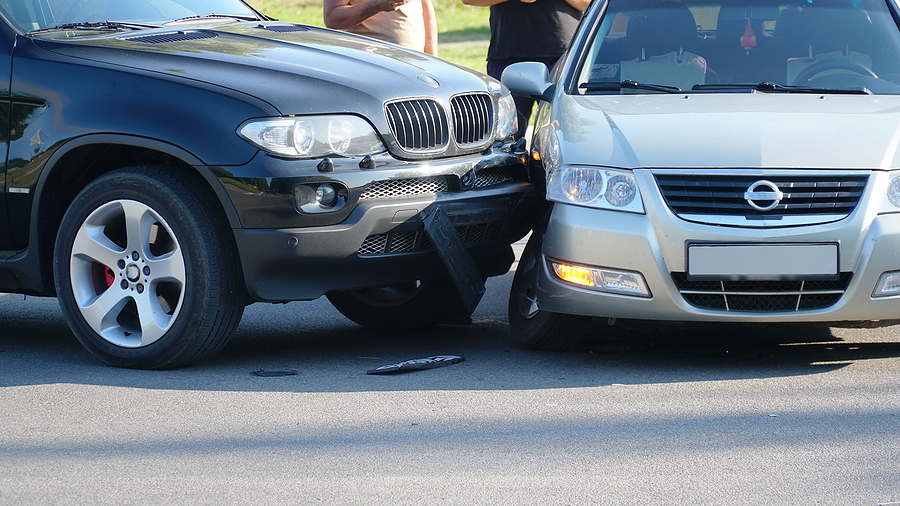Motor vehicle accidents can be a distressing experience, imposing a heavy toll on your physical health, mental well-being, and financial stability. Understanding your legal rights is, therefore, crucial to navigate through the complexities of the situation.
Whether you’re a victim, a witness, or a concerned individual, this blog provides critical insights into the legal aspects associated with injurious auto accidents. We’ll delve into your rights as an auto accident victim, as well as the role of a car accident lawyer and how to make a successful car accident claim. Stay with us as we unravel essential information that can aid you during such unforeseen circumstances.

What Are Your Legal Rights After a Car Accident?
It’s only natural to feel overwhelmed in the aftermath of a car wreck. Knowing your legal rights can help you gain a sense of control over the situation and safeguard your interests. Here’s what you need to know-
Right to File a Claim – As an injured party, you are legally entitled to file a claim and pursue compensation from the at-fault driver through their insurance carrier.
Right to Refuse a Settlement – You have the right to turn down any settlement offer that appears unfair or inadequate.
Right To Seek Legal Help – If an auto accident has caused physical harm or property damage, it makes sense to hire a car accident lawyer to protect your rights and secure maximum compensation.
How Can a Car Accident Lawyer Help?
Having an experienced car accident attorney by your side can mean the difference between making a successful car accident claim or being left empty-handed. Here’s how a lawyer can help you in such cases:
Assessing Your Case – A qualified auto accident lawyer can review your case and evaluate the extent of damages incurred and liability.
Collecting Evidence – They will then collect evidence in the form of medical records, police reports, or witness accounts to establish liability and strengthen your claim.
Negotiations – Your legal counsel will handle all negotiations with insurance companies on your behalf to ensure that you receive a full and fair settlement.
Actual Representation – There are many rules that must be followed in order to pursue a case and if some rules are not followed it can mean you lose your ability to collect damages. It is vital to obtain an attorney who knows the rules.
Advice & Support – Most importantly, your car accident attorney can provide you with honest advice and reliable emotional support throughout the legal process.
How to Make a Successful Car Accident Claim
Making a victorious claim requires filing the paperwork in time, gathering evidence, engaging an attorney, or appealing for compensation if necessary. Here’s how you can increase your chances of getting the justice you deserve-
Take Photos & Videos – Make sure to take pictures or videos at the scene of the accident to document all visible damages.
Collect Documents – Gather relevant documents such as medical bills, police reports, insurance policies, etc., that can help strengthen your claim. Your attorney will do most of this for you but it is vital that you work hand in hand with your attorney.
Seek Professional Help – Don’t try to pursue a claim without having the legal expertise of an experienced motor vehicle accident lawyer by your side.
Keep Track of Deadlines – Adhere to all deadlines stipulated in your state’s law for filing a lawsuit.
Stay Off of Social Media – Insurance companies and defense attorneys can twist any post, like, photo, or activity on your social media to try to reduce the value of your claim. Just stay off of the internet entirely until your claim is settled or until your lawyer advises you that it is okay.
What to Do After an Auto Accident That Was Not Your Fault
After being involved in a car accident, it’s easy to become overwhelmed with all the legalities involved. Here are some steps to follow in the aftermath of a car crash-
Seek Medical Help – First, always request medical attention as soon as possible, even if minor injuries appear. Do this at the scene with paramedics, as well as at a medical treatment center or hospital.
Stay Calm and Collect Information – Remain calm and try to get all the information you need from the other driver. Always call the police.
Contact Your Insurance Company – Notify your insurance company about the accident and provide them with all the information needed.
Hire a Car Accident Lawyer – Enlist the services of a qualified car accident lawyer to protect your rights and pursue compensation for damages.
Document Details and Evidence – Take pictures, record witness accounts and save medical bills as proof of damages incurred.
In Summary
Understanding your legal rights is key to navigating through the complexities of an auto accident. We hope this blog has provided you with all the necessary information needed and enabled you to document a successful car accident claim in case of unforeseen events. It’s always best to seek professional advice from an experienced lawyer who can guide you through your particular situation and who will represent your interests only.
Would you like to learn more about your rights to pursing compensation after being injured in an auto accident that was not your fault? Contact the Law Office of Craven, Hoover, and Blazek P.C. at 317-881-2700 to schedule a free initial consultation with a seasoned car accident attorney in Indianapolis, Indiana. Choose to consult with us over the phone or online video conference, or in person at our Indy office. We can also meet at your place of inpatient medical treatment. We do not require any upfront lawyer fees, and only get paid if we recover a settlement or an award for you.
Related Posts:
A Thorough Guide to Making a Car Accident Injury Claim
What You Need to Know Before Filing an Injury Claim for a Car Accident
Most Common Auto Accident Injuries and What Causes Them
